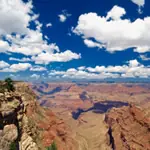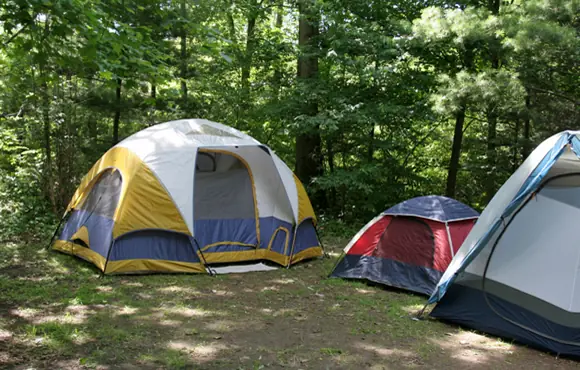Next time you plan on taking an RV trip cross-country, try these helpful tips that experienced RVers often use.
Use a Timer for Your Lights
We have heard complaints about people who leave their awning lights on all night and how it disrupts those around them. So we decided that if we use an outdoor timer, we can set it and forget it. No one is disturbed by our lights at night.
Submitted By: Roger & Brenda Hagan
Solar Lights
Purchase a couple of solar lights and place them by your RV steps. They will give off enough light for you to see, but they aren't too bright to disturb your neighbors or other RVers nearby.
Submitted By: Warren Brelsford
Calculating Your RV Solar Power Needs
It requires only a little math and a realistic assessment of how much power you actually use. The formula for computing amp hours is the number of hours multiplied by the number of amps used per hour. For example, one light uses 1.5 amps x 6 hours = 9.0 amps per hour and your television uses 1.4 amps x 3 hours = 4.2 amps per hour.
Submitted By: Robert Flasken
Check your Camper Brakes
Most of us check our lights on our campers every time we hook-up, but most people don't check their brake controllers. I make it a habit to activate the brake controller by using the emergency handle or button, just as soon as I put my tow vehicle in gear. When the tow vehicle starts rolling, I activate the controller to make certain the brakes are working properly. This way there are no surprises!
Submitted By: Henry Donald
Sanitizing Your RV Water System
Stagnant water in your RV is very common and easily detectable. To prevent and maintain freshness in your RV water supply be sure to use the appropriate sanitizing products. A majority of sanitizers are in liquid form and are easy to use. Just mix a pre-measured amount according to the directions into your water system and you have fresh water; in most cases no drainage is required.
It can also come in the form of a quick-dissolving tab that is simply dropped into your water system. This method is very quick and no measuring is required, just follow the directions. Other methods have been used over the years that have proved useful, such as using household bleach to sanitize your water system. If you select this method be sure to use 1 fl. oz. per every 8 gallons of water and drain appropriately. Once you can no longer smell the bleach the sanitizing process is complete.
Submitted By: Jennifer White
Avoid Mold and Mildew in Your RV
One of the number one contributors to mold and mildew build up in your RV is due to long-term storage. As you would at home it's always good to air items out every now and again. Follow these three steps to avoid build-up in your RV; look for mold in moist places such as sinks, showers, toilets, vents and storage compartments. Next, fix or repair all leaks, damaged caulking and any other item you inspected that showed early signs of mold. Lastly, exterminate and treat mold with appropriate cleaners. You can purchase your preferred brand or make your own solution. A remedy that has proven successful is a mixture of tea tree oil diluted in water.
Submitted By: Casey Thatcher
How to Check Your RV Battery
Locate your battery and be sure you are checking the 12-volt DC battery and not something connected to the 120-volt AC power supply. Begin running checks on all batteries in your vehicle and keep a record of the results. An RV battery tends to outlast at least 2-3 car batteries. So make sure you check accordingly.
Submitted By: Bill Moore









Discuss This Article